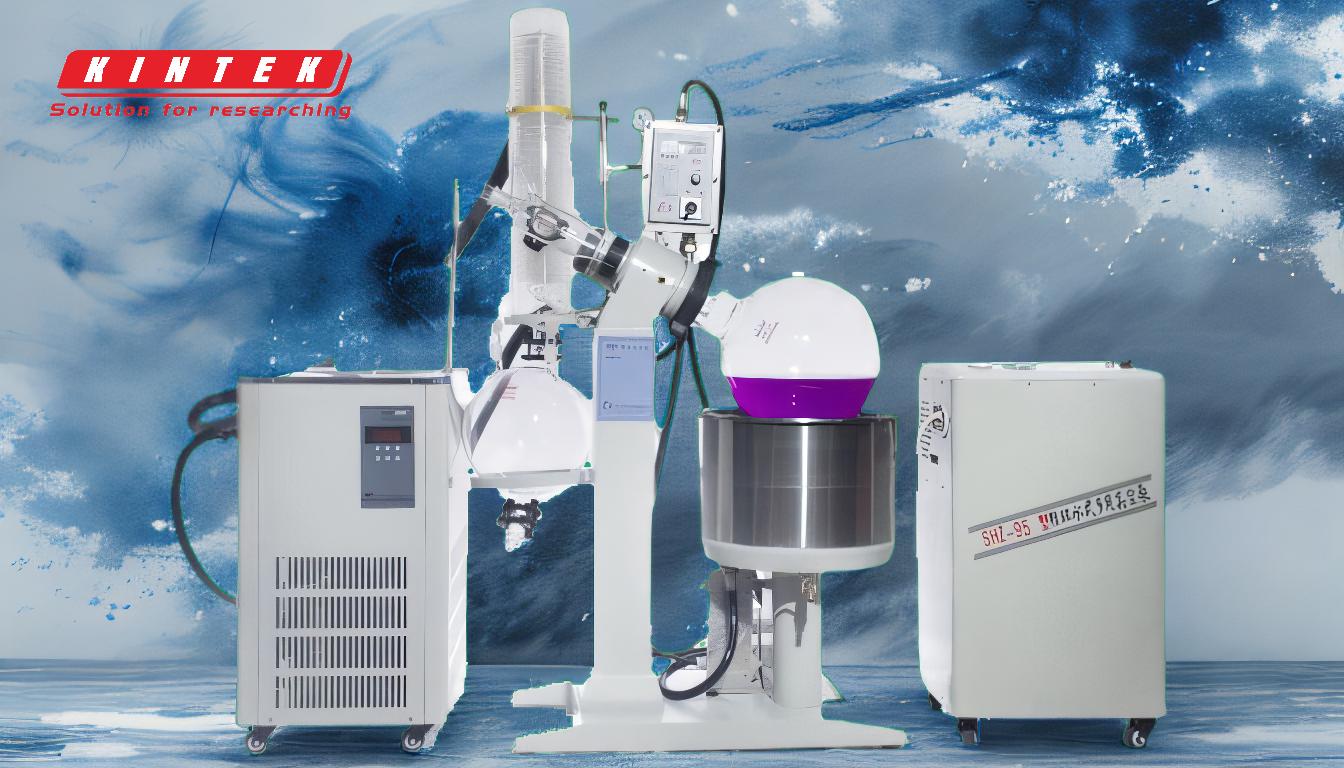A rotary evaporator, often referred to as a rotavap or rotovap, is a versatile piece of equipment primarily used in laboratories for the gentle and efficient removal of solvents from samples through evaporation. In the culinary world, it has found creative applications, particularly in molecular gastronomy and high-end cooking. Chefs and mixologists use rotary evaporators to concentrate flavors, extract volatile aromas, and create unique textures in food and beverages. By operating under reduced pressure and controlled temperatures, a rotary evaporator allows for the extraction and concentration of flavors without damaging heat-sensitive compounds, making it an invaluable tool for modern culinary experimentation.
Key Points Explained:

-
Functionality of a Rotary Evaporator:
- A rotary evaporator works by evaporating solvents from a sample under reduced pressure, which lowers the boiling point of the solvent, allowing it to evaporate at lower temperatures.
- This process is particularly useful for preserving delicate flavors and aromas that might be lost or altered through traditional heating methods.
-
Applications in Cooking:
- Concentration of Flavors: Rotary evaporators can concentrate juices, such as blood orange juice, by removing water, resulting in a more intense and pure flavor.
- Extraction of Aromas: They are used to extract volatile flavor and aroma molecules from herbs, fruits, and spices, which can then be used to enhance cocktails, broths, and other culinary creations.
- Infusion of Alcohol: Chefs and mixologists use rotary evaporators to infuse alcohol with herbs, fruits, or spices, creating unique and complex flavors for cocktails and liquors.
- Creation of Foams and Gels: By manipulating temperature and pressure, rotary evaporators can be used to create foams and gels, adding new textures to dishes.
- Separation of Components: They can separate sugars, acids, and other compounds from aromas and alcohols, allowing for the creation of more refined and targeted flavor profiles.
-
Advantages in Culinary Use:
- Preservation of Heat-Sensitive Compounds: The ability to operate at low temperatures ensures that heat-sensitive compounds, such as certain vitamins and flavor molecules, are preserved.
- Precision and Control: The precise control over temperature and pressure allows for consistent and repeatable results, which is crucial in high-end culinary applications.
- Versatility: Rotary evaporators can be used for a wide range of culinary tasks, from extracting flavors to creating new textures, making them a versatile tool in the kitchen.
-
Examples of Culinary Uses:
- Concentrating Coffee: By removing water, a rotary evaporator can concentrate coffee, resulting in a more potent and flavorful brew.
- Making Homemade Aquavit or Chocolate Liquor: The extraction of flavors from herbs and spices can be used to create homemade liquors with unique flavor profiles.
- Extracting Brandy and Syrup from Wine: This process allows for the creation of concentrated syrups and brandies with intense flavors derived from the original wine.
-
Integration into Modern Culinary Techniques:
- Molecular Gastronomy: Rotary evaporators are a key tool in molecular gastronomy, where chefs experiment with the physical and chemical transformations of ingredients to create innovative dishes.
- High-End Cocktail Making: Mixologists use rotary evaporators to create bespoke infusions and extracts, elevating the complexity and uniqueness of their cocktails.
In summary, a rotary evaporator is a powerful tool in both scientific and culinary contexts. In cooking, it allows chefs and mixologists to push the boundaries of flavor and texture, creating dishes and drinks that are both innovative and refined. Its ability to work under reduced pressure and controlled temperatures makes it ideal for extracting and concentrating delicate flavors without compromising their integrity.
Summary Table:
| Key Feature | Description |
|---|---|
| Functionality | Evaporates solvents under reduced pressure, preserving delicate flavors. |
| Applications in Cooking | Concentrates flavors, extracts aromas, infuses alcohol, creates foams and gels. |
| Advantages | Preserves heat-sensitive compounds, offers precision, and is highly versatile. |
| Culinary Uses | Concentrating coffee, making liquors, extracting syrups, and more. |
| Modern Techniques | Integral to molecular gastronomy and high-end cocktail making. |
Unlock the potential of rotary evaporators in your kitchen—contact us today to learn more!











